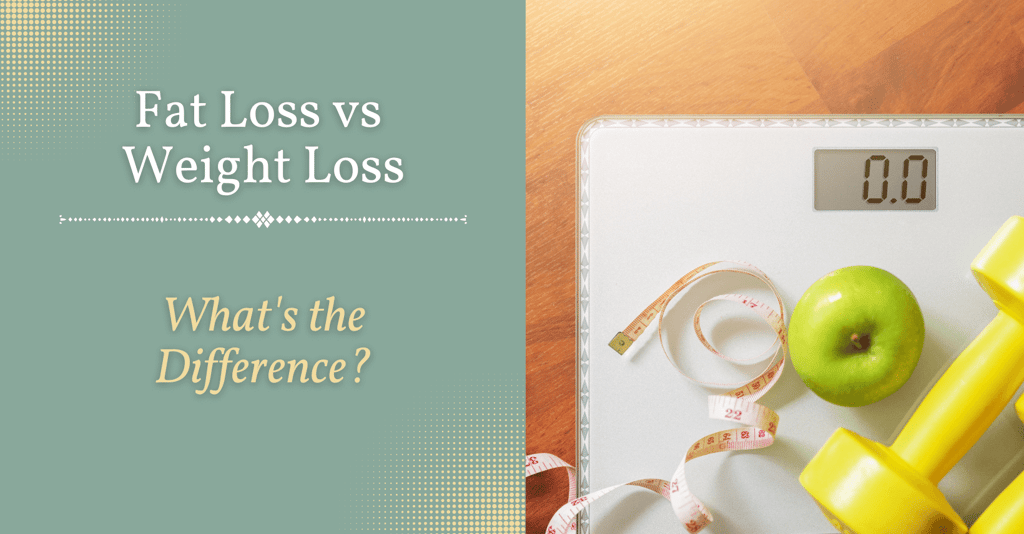Add your promotional text...
Fat Loss vs Weight Loss: What's the Difference?
7/24/20243 min read


Weight loss is a goal shared by many, but what does it truly mean? To unravel the complexity, let's delve into the realms of fat loss and weight loss, exploring the nuances that differentiate these two concepts which are crucial for achieving meaningful and sustainable results.
The Difference Between Fat Loss and Weight Loss
Fat loss is more than just shedding pounds. It involves a targeted approach to reduce body fat while preserving lean muscle mass. This distinction is vital as losing weight doesn't always equate to losing fat.
Weight loss, on the other hand, encompasses a reduction in overall body mass. It's a numerical measure often tracked on the scale. While shedding excess weight can be beneficial, the composition of that loss matters for long-term health.
Relying solely on the scale can be misleading. It doesn't differentiate between fat, muscle, or water weight. Understanding this nuance is crucial for gauging true progress on your fitness journey.
Muscle plays a pivotal role in weight loss. It's metabolically active, meaning the more muscle you have, the more calories your body burns at rest. Prioritizing muscle preservation is key for sustainable weight management.
Benefits of Fat Loss
Beyond aesthetics, fat loss offers a myriad of health benefits.
Reduced risk of chronic diseases: Excess body fat, especially around the waist, is associated with a higher risk of serious health conditions such as heart disease, diabetes, and certain cancers. Losing fat lowers these risks and improves overall health.
Improved cardiovascular health: Fat loss contributes to better heart health by reducing the strain on the heart, lowering blood pressure, and improving cholesterol levels. This can lead to a decreased risk of heart attacks and strokes.
Enhanced energy levels: Losing body fat can increase energy levels. With less fat to carry, the body becomes more efficient at using energy, potentially making daily activities feel easier and less tiring.
Dietary and Exercise: Factors in Fat Loss
Nutrition plays a pivotal role in achieving fat loss goals. Incorporating whole, nutrient-dense foods and maintaining a caloric deficit are fundamental principles for effective fat loss.
Physical activity is a potent tool for burning fat. Incorporating a mix of cardiovascular and strength training exercises not only aids in fat loss but also contributes to overall well-being.
Healthy Mindset for Long-Term Success
The mental aspect of fat loss is often underestimated. Cultivating a positive mindset, setting realistic goals, and finding joy in the process are essential for long-term success.
Extreme diets and excessive exercise can do more harm than good. Embracing a balanced and sustainable approach is key to avoiding burnout and achieving lasting results.
Recognizing that there's no one-size-fits-all approach to fat loss is empowering. Tailoring strategies to individual preferences, lifestyle, and metabolism ensures a more sustainable and enjoyable journey.
Tracking Progress Beyond the Scale
While the scale provides a numerical measure, other indicators of success shouldn't be overlooked. Celebrating non-scale victories, such as improved energy levels or clothing fit, contributes to a positive mindset.
Recognizing and celebrating milestones is crucial for staying motivated. Whether it's reaching a fitness goal or adopting healthier habits, acknowledging achievements reinforces positive behaviors.
If you have any questions or need some assistance, feel free to submit a comment or send us a message here.
Conclusion
In the complex landscape of fat loss vs weight loss, a holistic approach is paramount. Prioritizing health, embracing sustainable practices, and celebrating the journey's victories create a foundation for lasting well-being.
FAO’s
Can I lose weight without losing fat?
Yes, it's possible to lose weight through various methods, but for long-term health, focusing on fat loss is recommended.
Is the scale the best measure of progress?
While the scale provides a numerical value, other indicators like body composition and overall well-being are equally important.
Do I need to follow a strict diet to achieve fat loss?
A balanced and sustainable approach to nutrition is more effective for long-term fat loss than extreme diets.
How important is exercise in fat loss?
Exercise plays a crucial role in burning fat and preserving muscle mass, contributing to overall fat loss success.
What role does mindset play in a fat loss journey?
A positive mindset is essential for long-term success, helping individuals stay motivated and resilient during challenges.
